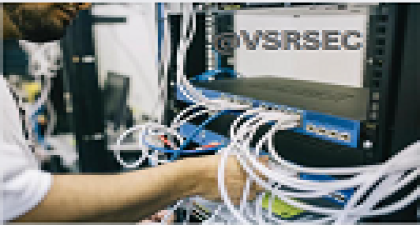MECHATRONICS
Branch : ME






Understand Network Architecture, Protocols, and Security
This comprehensive course is designed to provide learners with a solid foundation in computer networking concepts, technologies, and practical skills required in today’s IT environment. Covering everything from basic networking principles to advanced topics such as network security and troubleshooting, the course prepares students to design, build, and manage both small-scale and enterprise-level networks.
Participants will explore key concepts like network topologies, protocols (TCP/IP, HTTP, FTP), IP addressing, subnetting, routing, switching, wireless networks, and network security. Hands-on labs and real-world projects reinforce theoretical knowledge by providing practical experience with configuring routers, switches, firewalls, and monitoring tools.
Ideal for beginners, IT professionals, and anyone preparing for networking certifications, this course offers a step-by-step learning path that equips learners with the confidence and skills to excel in networking roles.
Fundamentals of computer networks and communication models
Understanding and configuring network devices (routers, switches, firewalls)
IP addressing, subnetting, and network segmentation
Network protocols and their functions
Wireless networking principles and security
Introduction to network security concepts and best practices
Troubleshooting and maintaining network infrastructure
Hands-on labs with real equipment and simulation tools
Preparation for industry-standard certifications (CCNA, CompTIA Network+, etc.)


Explain the basic concepts and architecture of computer networks, including OSI and TCP/IP models.
Identify and configure key networking components such as routers, switches, and wireless access points.
Apply IP addressing and subnetting techniques for efficient network design and management.
Understand and implement common network protocols (e.g., DHCP, DNS, HTTP, FTP, ICMP).
Design and deploy both wired and wireless local area networks (LANs and WLANs).
Configure and troubleshoot small to medium-sized networks using tools and simulators.
Implement basic network security practices to protect against unauthorized access and threats.
Use command-line and GUI-based tools to monitor and analyze network performance.
Demonstrate knowledge aligned with industry certifications such as CompTIA Network+ or Cisco CCNA.
Prepare for entry-level roles in network administration, technical support, and IT infrastructure.
0 Reviews
Review Course
For Review on Course. You need to Login first. Login Here